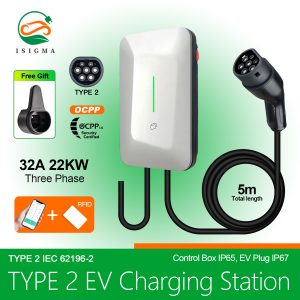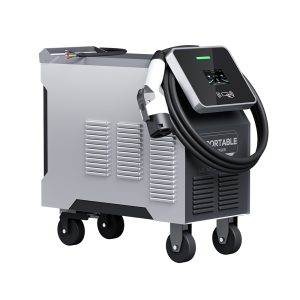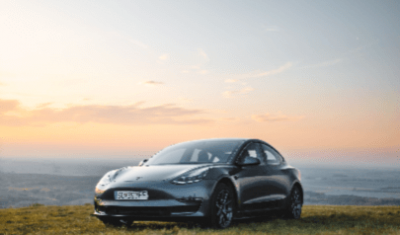Charging an electric vehicle revolves around the paramount principle of convenience, with speed being the key to achieving that convenience.
If you reside in a household with a single-phase power supply, the swiftest EV charger available boasts a capacity of 7.4 kilowatts (kW), translating to a remarkable addition of 30 miles of range per hour.
The quickest single-phase home chargers in the market come in three flavors: 7kW, 7.2kW, and 7.4kW. The number here signifies the charging speed, which is vital if your electric vehicle supports the maximum rate.
Charging Speeds at a Glance:
- 7kW delivers 25 miles of range per hour.
- 7.2kW provides 28 miles of range per hour.
- 7.4kW ensures 30 miles of range per hour.
How long does it take to charge an electric car? The process typically spans five to eight hours to recharge most electric car batteries from 10% to 80% using a 7kW ev charger. Stopping at 80% State of Charge (SoC) is recommended to preserve the battery. The last 20% of charging can be time-consuming, extending the process by 2-3 hours at 7kW due to increased heat generation.
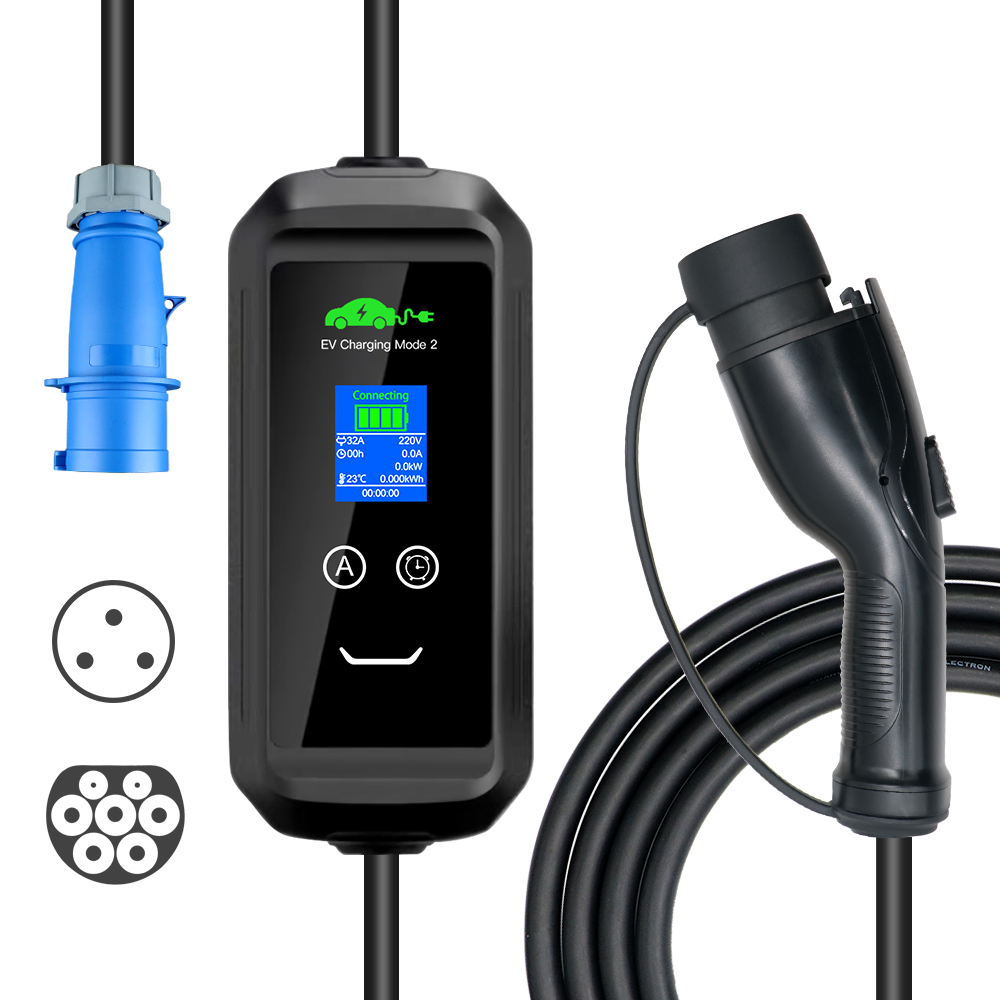
To estimate total charging time using a quick calculation, for every increase of two decimal points in charging speed (e.g., from 7kW to 7.2kW), you can anticipate a 2% reduction in charging time. Consequently, a 7.4kW charger is 4% faster than a 7kW charger.
A Formula for Total Charge Time: Charging time (hours) = battery capacity (kWh) ÷ charger power (kW) x 0.9
For instance, assuming a battery capacity of 42kWh:
- 7kW charger takes 6 hours and 0 minutes to go from 10% to 100%.
- 7.2kW charger requires 5 hours and 50 minutes for the same charge.
- 7.4kW charger accomplishes it in 5 hours and 41 minutes.
How long does it take to fully charge using the 7kw ev charger at 7kW ? Larger batteries exceeding 60kWh usually demand 8-12 hours. For example, a Tesla Model 3 (79kWh) takes approximately 11 hours and 45 minutes to charge from 0% to 100%. Smaller batteries, like the one in a BMW i3 (42.2kWh), require around 6 hours and 25 minutes for a full charge.
For those who desire faster home charging speeds, there are some strategies to explore. Pre-heating the battery before charging or checking your charger's power demand balancing may help improve charging speeds. Additionally, upgrading from a single-phase to a 3-phase power supply enables the use of 11kW home chargers, which are approximately 57% faster than 7kW ev chargers. Some home chargers, like the Wallbox Pulsar Plus, can accommodate both single-phase and 3-phase power, providing charging speeds of up to 22kW.
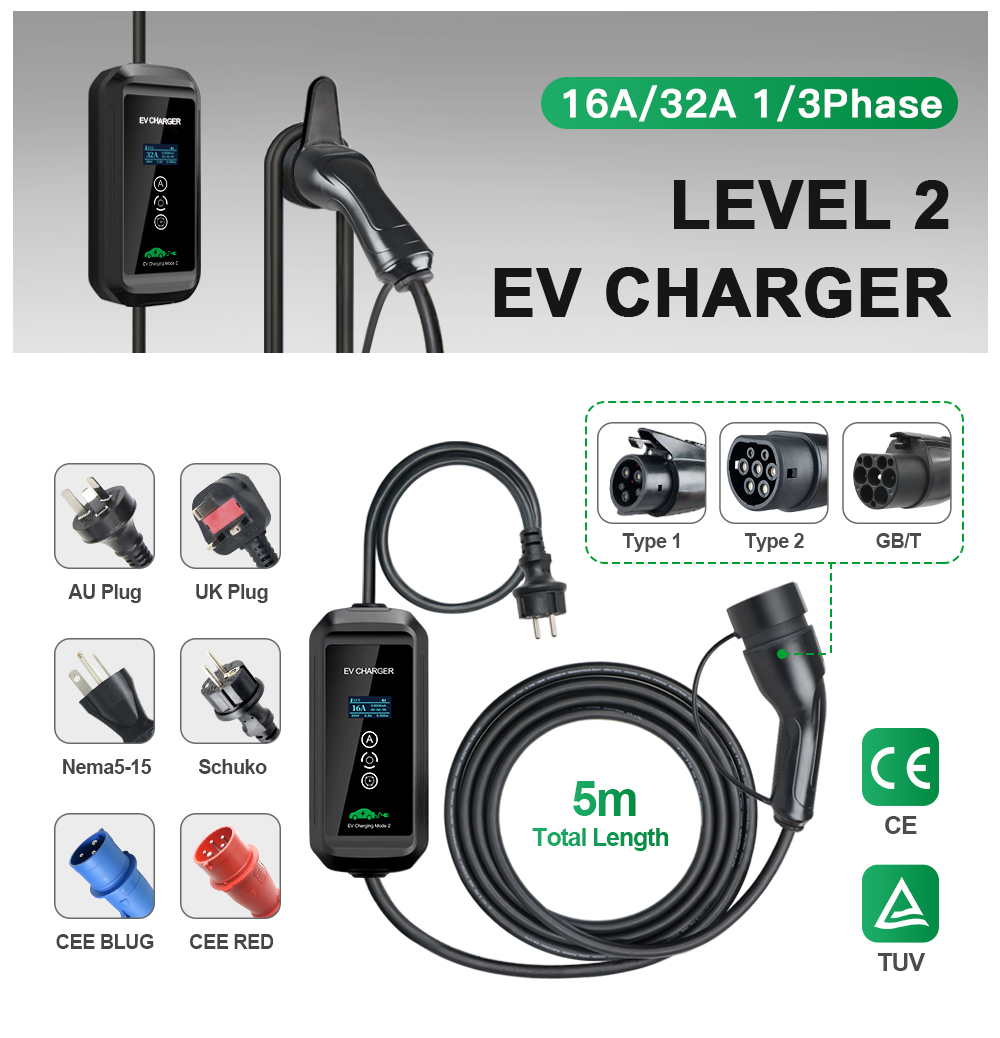
Several factors influence charge times, including temperature, voltage drops, and the onboard charger's input rate. Cold weather can slow down the charging process by affecting the lithium-ion battery's chemical reactions, reducing charge speeds and range. Voltage drops occur when your home's electricity demand exceeds the supply capacity. The onboard charger in your electric vehicle may have a maximum input rate, which could be less than 7kW.
Is 7kW ev charger sufficient? In most cases, a 7kW ev charger should meet the needs of home charging, unless you require extremely rapid charging. In such cases, 11kW chargers offer a 57% increase in speed.
Nonetheless, even with the boost in charging speed at 11kW, it may still be more time-effective to drive to a 50kW public charger or a 22kW charger due to the shorter travel time compensating for the faster charging rate.
In summary, 7kW ev chargers are generally fast enough to provide convenient home charging. They can replenish most batteries from 10% to 80% in less than eight hours. While upgrading to 7.2kW or 7.4kW ev chargers may offer minor improvements in speed, the distinction is often negligible, allowing consumers to explore options among 7kW, 7.2kW, and 7.4kW chargers without obsessing over higher numbers. For the majority of users, a 7kW charger should suffice for their charging needs."



